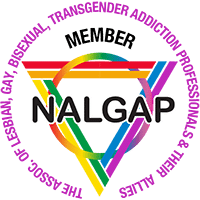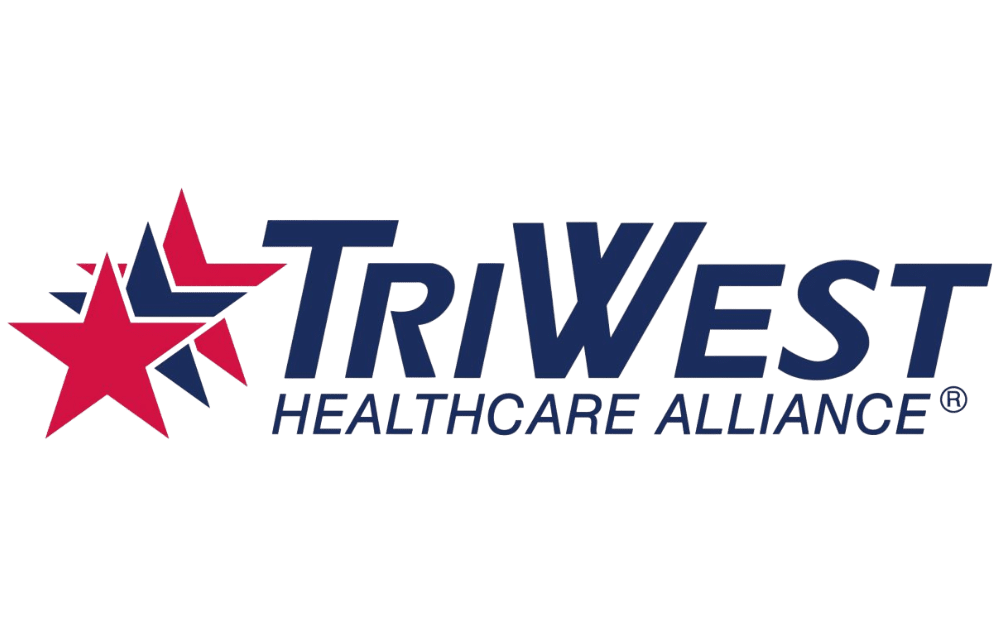Dual diagnosis treatment
Defining Dual Diagnosis Treatment
Dual diagnosis treatment refers to the integrated approach used to address individuals diagnosed with both a mental health disorder and a substance use disorder. This co-occurrence complicates recovery because the symptoms of one disorder can exacerbate the other. It’s essential to treat both conditions simultaneously for effective recovery. At Mile High Recovery Center, we focus on this integrated model, considering the nuances and interactions between mental health and addiction.
Importance of Comprehensive Care
Dual diagnosis treatment requires a comprehensive and coordinated approach. Addressing mental health and substance use issues in silos often leads to partial recovery or relapse. Therefore, our team at Mile High Recovery Center provides a full spectrum of care that ranges from residential treatment to various outpatient programs, ensuring that every aspect of an individual’s health is addressed.
A comprehensive treatment plan at our facility might include a combination of therapies such as Cognitive Behavioral Therapy, Dialectical Behavior Therapy, and experiential modalities like adventure and equine-assisted therapy. By employing diverse treatment strategies, we tailor our approach to the unique needs of each client, facilitating a more holistic healing process.
Role of Evidence-Based Therapies
Evidence-based therapies are crucial in dual diagnosis treatment. These therapies, supported by scientific research, increase the likelihood of successful outcomes. At Mile High Recovery Center, we employ therapies like EMDR for trauma treatment and Motivational Enhancement Therapy to help clients find their intrinsic motivations for recovery.
Incorporating these therapies helps in addressing the root causes of both mental health and substance use disorders. As someone who has worked closely with clients, I’ve seen the profound impact that targeted therapies can have in empowering individuals to reclaim their lives. With with a strong focus on continuous assessment, we adjust therapies to align with each individual’s evolving needs.
Integrating Experiential Modalities
Experiential modalities are an innovative component of dual diagnosis treatment. Adventure therapy, for instance, provides clients with opportunities to challenge themselves in supportive, outdoor environments. This therapy helps build self-esteem and resilience, crucial traits for sustained recovery. Similarly, art and music activities offer creative outlets for expression and healing, often revealing insights that traditional talk therapies might not uncover.
At Mile High Recovery Center, these experiential therapies have become a cornerstone of our approach, allowing clients to connect with their emotions and experiences in transformative ways. Combining these modalities with more traditional therapies ensures a well-rounded treatment plan that addresses all facets of recovery.
Importance of Medication-Assisted Treatment
Medication-Assisted Treatment (MAT) plays a pivotal role in managing dual diagnosis treatment. Using medications like Suboxone and Vivitrol helps in reducing withdrawal symptoms and cravings, making it easier for individuals to focus on their therapy and recovery. At our facility, we closely monitor and adjust these medications to align with our clients’ progress and needs.
The integration of MAT in treatment plans also aids in managing the symptoms of mental health disorders. By providing stability through medication, clients can engage more effectively in therapeutic processes, supporting a more comprehensive recovery journey. Medication-assisted treatment is often accompanied by ongoing medical assessments and professional support, ensuring safety and efficacy.
Coordinated Approach in Housing and Recovery
For many individuals, housing stability is a critical component of effective dual diagnosis treatment. Mile High Recovery Center’s integrated housing-to-treatment pipeline offers stable, supportive housing throughout the recovery process. This continuity ensures that clients have a consistent environment, free from triggers and stresses that might compromise their recovery.
Our coordinated approach also extends to alumni support, with a vibrant community that helps maintain long-term recovery. Alumni participation often includes mentorship and peer support, providing valuable insights and encouragement to those navigating their recovery journeys. This holistic support network is a testament to our commitment to fostering lasting change.
Tailoring Treatment to Individual Needs
Customization is key in dual diagnosis treatment. Each individual’s path to recovery is unique, necessitating a personalized treatment plan that takes into account their specific circumstances and goals. At Mile High Recovery Center, we emphasize a multi-phase, personalized approach that combines medical management with hands-on therapeutic experiences.
By integrating feedback from clients and their families, we ensure that the treatment plan evolves with the individual’s progress. This client-centered approach not only empowers individuals but also enhances the therapeutic alliance, which is an essential component of successful treatment outcomes.
Importance of Mental Health in Dual Diagnosis Treatment
Mental health issues often underpin the complexities of dual diagnosis treatment. Conditions such as anxiety, PTSD, and bipolar disorder can significantly influence substance use behaviors, creating a cycle that is difficult to break. Addressing these mental health challenges is crucial to achieving and maintaining recovery.
At Mile High Recovery Center, we provide specialized mental health services that address these co-occurring conditions. Our team of experienced clinicians employs strategies designed to stabilize and improve mental health, creating a solid foundation for overcoming substance use disorders. This dual focus is essential for long-term recovery success.
Navigating Insurance and Access to Care
Access to care and navigating insurance can be daunting for many seeking dual diagnosis treatment. Mile High Recovery Center assists clients by verifying insurance coverage and working with major carriers like Aetna, Cigna, and Blue Cross Blue Shield. This ensures that financial hurdles do not become barriers to receiving necessary treatment.
By streamlining these processes, we enable individuals to focus on their recovery without the additional stress of logistical concerns. This support is a vital part of our mission to make comprehensive, quality care accessible to those who need it most, fostering an inclusive environment where healing is possible for everyone.
Community Involvement and Reintegration
Community involvement is a significant factor in sustained recovery. The support of a community can bolster resilience and provide networks that assist individuals in maintaining their sobriety. At Mile High Recovery Center, we facilitate community engagements that encourage social reintegration and the rebuilding of life skills.
Our location in Denver City Center allows for unique urban and outdoor therapeutic activities that support community-based recovery. Clients are encouraged to participate in local events and volunteer opportunities, fostering a sense of belonging and purpose that reinforces the recovery process.
Training and Professional Development of Staff
The effectiveness of dual diagnosis treatment is significantly influenced by the expertise of the staff. At Mile High Recovery Center, we prioritize continuous professional development, ensuring that our team is equipped with the latest knowledge and skills in the field of addiction treatment. Our clinicians and staff bring lived recovery experience, offering authentic empathy and understanding to those they serve.
This commitment to excellence is reflected in our accreditation and industry recognition, as we strive to uphold high standards in all aspects of our care. By investing in our staff and fostering a culture of growth and learning, we enhance the quality of care and support available to our clients.
- Integration of therapy and medication in treatment plans.
- Holistic approach that includes experiential therapies.
- Comprehensive care that addresses both mental health and substance use.
What is dual diagnosis treatment, and why is it important?
Dual diagnosis treatment involves addressing both a mental health disorder and a substance use disorder simultaneously. This approach is crucial because the symptoms of one disorder can exacerbate the other, making recovery more challenging if not handled concurrently. At Mile High Recovery Center, we see firsthand how treating both conditions together leads to more effective recovery. Imagine dealing with anxiety while trying to overcome alcohol misuse; treating just one might leave the other festering, potentially leading to relapse. By focusing on both, we offer a more comprehensive path to healing.
How does comprehensive care improve dual diagnosis treatment outcomes?
Comprehensive care, which includes a combination of residential treatment, outpatient programs, and medication-assisted treatment, ensures that every aspect of an individual’s health is addressed. This holistic approach is essential because it acknowledges that recovery isn’t linear and each person has unique needs. At Mile High Recovery Center, we provide a full continuum of care, which means our clients can move seamlessly between different levels of support as their recovery progresses. This flexibility is key in accommodating the evolving nature of recovery, much like how a personalized fitness plan adjusts as you improve your physical health.
What role do evidence-based therapies play in treating dual diagnosis?
Evidence-based therapies are therapies that have been scientifically proven to be effective. They form the backbone of our treatment strategy at Mile High Recovery Center. For example, Cognitive Behavioral Therapy (CBT) helps clients understand the connection between their thoughts, emotions, and behaviors. By incorporating therapies like EMDR for trauma and Motivational Enhancement Therapy, we address the root causes of both mental health and substance use disorders. This approach not only helps in achieving sobriety but also empowers individuals to reclaim their lives. Research consistently shows that integrating these therapies enhances recovery outcomes, providing clients with tools to manage both their mental health and substance use challenges effectively (SAMHSA).
Why are experiential modalities beneficial in dual diagnosis treatment?
Experiential modalities, such as adventure therapy and equine-assisted therapy, allow clients to engage with their emotions and experiences in innovative ways. These therapies offer a break from traditional talk therapies, presenting different avenues for expression and insight. At Mile High Recovery Center, we’ve observed how these therapies build self-esteem and resilience. Picture a client overcoming a challenging rock climb; that victory can mirror their journey through recovery, instilling a sense of accomplishment that fuels further progress. These activities foster personal growth and healing by connecting physical challenges with emotional breakthroughs, reinforcing the broader therapeutic process (Hackensack Meridian Health).
How does medication-assisted treatment support dual diagnosis treatment?
Medication-assisted treatment (MAT) is crucial for managing withdrawal symptoms and cravings, allowing clients to focus more on their recovery. Using medications like Suboxone and Vivitrol, alongside therapy, ensures that both the physiological and psychological aspects of addiction and mental health are addressed. At Mile High Recovery Center, we monitor these medications closely, adjusting as needed to match each client’s progress. For instance, stabilizing with medication can make it easier to engage in therapies designed to tackle underlying mental health issues, ultimately supporting a comprehensive recovery journey (NAMI).
Why is a coordinated approach in housing and recovery important in dual diagnosis treatment?
A stable living environment is critical for recovery because it reduces exposure to triggers and stressors that may lead to relapse. Mile High Recovery Center’s integrated housing-to-treatment pipeline offers consistent and supportive housing, which we’ve found to be invaluable for many individuals navigating dual diagnosis treatments. Housing stability allows clients to focus on their mental health and recovery without the distraction of unstable living conditions. Furthermore, our alumni network plays a vital role in supporting long-term recovery by fostering a sense of community and continuity, encouraging ongoing engagement with the recovery process.
Why is it important to tailor dual diagnosis treatment to individual needs?
No two individuals have the same recovery journey, so personalization is key. By tailoring treatment plans to the specific needs and circumstances of each client, we can provide more effective support at Mile High Recovery Center. This might include adjusting therapy types or frequencies, integrating feedback from family, or modifying medication strategies. Imagine two clients with similar diagnoses; one might respond well to art therapy, while another benefits more from group therapy. Customization not only aligns treatment with personal preferences and needs but also enhances the therapeutic alliance, empowering individuals to take an active role in their recovery.
How does addressing mental health enhance dual diagnosis treatment?
Mental health significantly impacts substance use behaviors. When conditions like anxiety or bipolar disorder are untreated, they can fuel substance use as individuals attempt to self-medicate. By providing specialized mental health services, we stabilize these underlying conditions, creating a foundation for overcoming substance use disorders. Our clinicians at Mile High Recovery Center bring lived experience and expertise to their work, offering authentic empathy and understanding that helps clients feel supported and understood. This dual focus on mental health and substance use is critical for achieving lasting recovery.
How can individuals navigate insurance and access to care for dual diagnosis treatment?
Navigating insurance can be daunting, but it’s an essential step to access necessary care. At Mile High Recovery Center, we assist clients by verifying insurance coverage and working with major carriers to remove financial barriers to treatment. This support allows individuals to concentrate on recovery rather than worrying about logistical concerns. By simplifying the process, we make high-quality dual diagnosis treatment more accessible. If you’re considering treatment, reaching out to facilities that offer insurance support can be a valuable first step. Have you had any challenges with insurance in the past during health treatments? Sharing your experiences might help others in similar situations navigate their journey more smoothly.
What role does community involvement play in dual diagnosis recovery?
Community involvement is vital for long-term recovery as it provides a support network and a sense of belonging. At Mile High Recovery Center, we encourage participation in local events and volunteer opportunities, helping clients rebuild life skills and foster connections. Our location in Denver City Center offers unique opportunities for urban and outdoor therapeutic activities, enriching the recovery experience. Engaging with the community can enhance resilience and provide a renewed sense of purpose. How do you think participating in community activities can benefit someone in recovery? Engaging with this question might help illuminate the broader impacts of community support.
Why is continuous training and professional development of staff crucial in dual diagnosis treatment?
The effectiveness of treatment largely depends on the expertise of the staff. Continuous professional development ensures that clinicians and support staff are equipped with the latest knowledge and skills. At Mile High Recovery Center, we prioritize this by fostering a culture of growth and learning among our team. This commitment not only enhances the quality of care our clients receive but also leads to better treatment outcomes. Our team includes individuals with lived recovery experience, providing authentic empathy and connection to those we serve. By investing in our staff, we uphold high standards and deliver care that supports lasting change.
Resources
- Substance Abuse and Mental Health Services Administration (SAMHSA) – SAMHSA is the leading agency within the U.S. Department of Health and Human Services focusing on behavioral health issues and providing information and resources on mental health and substance use disorders.
- American Psychiatric Association (APA) – The APA is a professional organization representing psychiatrists in the United States, providing resources on mental health disorders and treatments.
- National Alliance on Mental Illness (NAMI) – NAMI is a grassroots mental health organization providing support, education, and advocacy for individuals and families affected by mental illness.
- National Institute on Drug Abuse (NIDA) – NIDA is a government research institute focused on the science of drug abuse and addiction, offering valuable information on drug abuse prevention and treatment.
- National Institute of Mental Health (NIMH) – NIMH is the leading federal agency for research on mental disorders, offering insights into the latest advancements in understanding and treatment of mental illnesses.
















